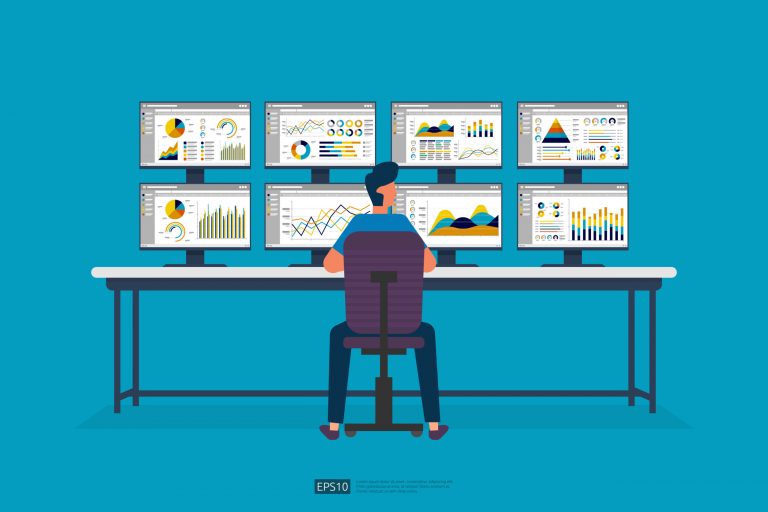There are many different uses for data analytics at credit unions. And, it seems, there are as many data analytics providers as there are uses. We believe this is a good thing.
However, we understand that the plethora of vendors can make it hard to find the right one. Moreover, even reviewing our data analytics provider guide won’t give you the answer to your ultimate question:
Which data analytics provider is right for my credit union?
Unfortunately, the answer to that question will depend on your credit union’s size, goals, and culture. Yet, the best way to find the answer to that question is to ask a series of other questions.
Here’s what you should ask potential data analytics providers for your credit union. And keep scrolling for our vendor recommendations below!
Data Analytics Provider Questions (and Reasoning)
First, we’d like to thank Arkatechture for their insight. Arkatechture is a CUSO providing data management and business intelligence solutions and services for credit unions. Their data warehouse platform, Arkalytics, combines a data lake with a suite of financial dashboards and customizable data studio for the credit union’s builders and designers.
Arkatechture has spoken in some of our events and provided fantastic guidance in the past. This blog of theirs exemplifies the type of information we expect all vendors to provide.
And now, the questions:
1. Do you have a data warehouse?
Vendors that offer a full warehouse (or lake) solution future proof your data analytics capabilities. You get a single source of truth that is vetted, governed, and defined—it’s all standardized and normalized.
Warehouse solutions allow you to scale and build, buy, rent, or lease any number of descriptive, prescriptive, and predictive solutions from your data.
Conversely, providers that don’t offer warehouses usually have a shorter onboarding time because they simply work with the data you give them. Plus, they’re good at creating spot solutions to solve specific problems, such as member attrition and industry benchmarking, but they may not give you the same flexibility and customization to address emerging challenges.
2. How long does it take to deploy (and gain insight)?
The faster you’re able to get up and running, the sooner you can begin to solve real business problems with data analytics. Especially if you’re trying to hit specific goals on a timeline, time to deploy could be a major consideration. Less time onboarding = more time improving.
One thing to be wary of in the promise of a lightspeed deployment is understanding exactly what work the vendor is accomplishing during the implementation. Ask these questions to dig deeper before comparing the promised speeds, especially if you’re evaluating a data warehouse solution:
- Are they just setting up the database itself and we must configure everything?
- Are they mapping and connecting all our sources to the data model or just the core?
- Are they setting up proper data governance best practices so we can trust the results?
- Are they building it for our needs today or planning for growth in the future?
3. Do you have existing models that we can use?
It’s hard to imagine a competent credit union data analytics vendor that doesn’t have some models ready for use. However, some might provide use case models that more closely fit your goals.
Ask about which models they have that fit your intended use case(s). Also ask how extensive their library of use cases is—it may be useful soon (and will save time in the long run). ). If they don’t solve for every use case out of the box, what options will your team have to define and build their own use cases?
4. Do you provide training and support?
Especially for vendors that provide data warehouses (and not just spot solutions), training and support are critical. What’s the point in buying a data analytics solution that nobody uses? Some vendors can even help you measure and analyze user adoption by looking at logs to determine which users are interacting with your dashboards and models the most. This can help surface up opportunities for additional coaching and training for your internal users.
Training is critical to building a data-driven culture and ensuring buy-in across all departments and staff. Support is key to building out dashboards and solutions, learning new strategies, and getting un-stuck.
You may also look for ongoing support in the form of user groups, knowledge hubs, documentation, training videos, and professional services when you need more firsthand development support.
If they do provide training and support, ask for how long.
5. What kind of data can you integrate?
The more data, the better. Most providers are very adept at pulling in data from a wide variety of sources. (For example, can they incorporate CRM data? Member survey data?) And, so long as that data can be normalized—and the process isn’t clunky—you’re good to go.
Ask about their integrations—it would be a bummer to learn that your preferred vendor doesn’t play well with parts of your stack.
6. What does your solution look and feel like?
This covers a lot of ground. For example, you might want to hear about:
- Reporting and visualization: What does the data look like after you’ve crunched the numbers? Does it make sense? Can you understand what it’s showing you?
- Composability: Creating new models, dashboards, and use cases takes familiarity with the data. How easy does the platform make it for your team? Will you need a data scientist, or does it offer low-code and no-code options?
- Self-service: Can anyone access and understand the data/dashboards/reports? Or is that capability in the hands of an elite few?
The more people who can use it, the better. Intuitive UI/UX helps, as does accessibility (multiple devices, natively or on browser, etc.).
7. How do you handle security and compliance?
As long as a 3rd party has access to your systems and any member data, you’ll want to make sure there’s no issue. You may find that some vendors go above and beyond here, whereas others meet bare minimum requirements.
Who Should You Ask?
Our credit union data analytics provider guide has a more complete list of vendors and information. However, we’re comfortable recommending some of our favorite vendors here. You will notice that all specialize specifically in credit unions (most are CUSOs) and data analytics (are not part of larger tech providers):
Warehouse / lake data analytics providers for credit unions:
- Datava emphasizes data activation. After all, what’s the use of a data analytics platform if it doesn’t connect to anything and you can’t do anything with it (unless you spend all your time building your own modules)?
- Cinchy changes the way credit unions access their data, in many cases enabling real-time data analytics capabilities that allow credit unions to respond immediately to opportunities.
Non-warehouse data analytics providers for credit unions:
- Crux Analytics helps credit unions cater to small business better. And we mean way better.
- TerraStrat handles complex geographic data for redomiciling, branch optimization, and more. You can also think of them as a fractional data science team.
Additional Resources
Like what you’ve seen so far? Sign up for our Fintech Call Program and get a personalized, 30-minute call each quarter. We’ll discuss the latest technologies and solutions, make key introductions, and offer early access to events, giveaways, and more!
And of course, please subscribe to our blog (if you haven’t already)!
Learn more about Datava here:




